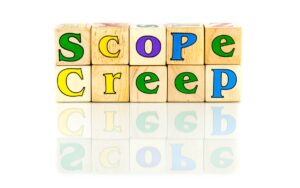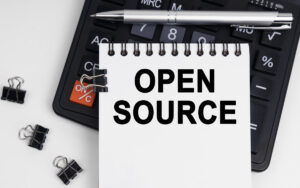Job switches are stressful. Be it the final or the first round of an interview, the stakes are high. High enough to rattle almost anyone. And yet, you can cruise through easily by preparing for it beforehand. Easier said than done, right?
Today, technical interviews have evolved to include not just technical expertise but also communication, interpersonal, and managerial skills. This holds true for all roles, but especially for those where behavioral competencies are critical.
In this article, we’ll explore common behavioral interview questions employers ask, offering tips to elevate your answers and sharing real-life examples. These insights will help ease the stress that usually comes with an interview.
Project managers, team leaders, and those in other managerial roles will also benefit from this project management program. This online program will equip you with the skills needed for success in technical interviews and beyond.
What Are Behavioral Interview Questions?
The COVID pandemic has reshaped the labor market. According to a report by Indeed and Glassdoor, an aging population in countries like the US, Canada, the UK, France, Germany, and Japan points to an ongoing worker shortage. Data from the Bureau of Labor Statistics shows that foreign-born people accounted for 18.6 percent of the U.S. civilian labor force, up from 18.1 percent in 2022. The trend is expected to continue as the availability of labor decreases. Consequently, countries are expected to rely heavily on skilled immigrant workers to help meet the demand.
In response to these shifting trends, the hiring process has also evolved. Recruiters and hiring managers now emphasize the interviewee’s soft skills, leading to the increased use of behavioral interview questions during the screening process.
Behavior questions are an interview technique used to understand a prospective candidate’s genuine working aptitude and personality. The interviewer (mainly the hiring manager) asks situational instead of hypothetical questions to the candidate, and then, with the information received, they assess how a candidate has performed and behaved in the past in response to the posed workplace stimuli.
These questions help the interviewer better understand who you are and how you work. Since these questions require you to share your real-life experiences, you already have all the answers you need.
Also Read: Top Project Manager Interview Questions and Answers for 2025
Importance of Behavioral Interview Questions
The US Chamber of Commerce points out that past behavior questions help leaders assess soft skills, which more than 60 percent of hiring managers say would otherwise be challenging. Moreover, structured behavioral interviews make comparing candidates for a job easier and fairer.
SHRM has also pointed out that behavioral interview questions provide applicants with a realistic job perspective, reduce the risk of interviewer bias, and increase the perception of fairness among job candidates.
Common Behavioral-based Interview Questions and Answers
Let’s look at the common examples of behavioral interview questions usually asked during a job interview.
1. Describe how you handled a challenge in the workplace.
This is a classic behavioral question that hiring companies almost always ask. Regardless of the job function or industry, you will likely encounter this question in your interviews. The main focus for the interviewer is to find out how well you can perform under pressure.
Sample Response
At my last job, an important project was scheduled to be delivered in 60 days. My supervisor had asked me to speed up and finish the project in 45 days while ensuring our other deadlines were unharmed. I took it up as a challenge for my team and me. We pitched in with a few extra hours to our daily work schedules, which helped us deliver the project within 42 days. While my team’s excellent support was crucial, my effective task allocation significantly affected our success.
2. Have you ever made an error? How did you handle it?
Humans are prone to making mistakes—that’s the hard truth. What’s important is how you take ownership of your mistakes. Do you view errors as a part of your journey?
It’s not a question that aims to highlight and show potential employers how prone or immune you are to making mistakes. It’s about tackling, learning from, and overcoming them.
Sample Response
Once, I mistakenly quoted the wrong membership fees at the club where I worked. But instead of panicking. I was honest and quick to report my mistake to my supervisor, who appreciated my ownership and timeliness. As a result, he asked me to offer an application fee waiver to that particular client. Luckily, the member agreed to join our club despite my mistake. This was a key lesson for me. This instance taught me the importance of ensuring accurate information and delivery whenever representing my work.
3. Explain how you set goals.
Companies treat goal-oriented people as prized assets. However, only some people are aware of how effective goal-setting works. This question allows interviewers to understand your goal-creation process and your effectiveness at achieving it.
Sample Response
I aspired to join the fashion industry from the get-go. My first role was as a sales associate in a department store. I decided to work up to the department manager position within one year, saving enough to afford a full-time stint at a design school. Though working as a department manager wasn’t my end goal, I strived hard toward it because I knew that would eventually help me achieve my main goal.
Also Read: Exploring Top AI Project Management Tools
4. Describe any goal you reached and how you achieved it.
At first glance, this might seem similar to the last question. However, this question dives deeper into your steps to accomplish your goals.
Sample Response:
Right after joining Company X, my eyes were set on the ‘Employee of the Month’ title. Since it was a challenging task, most of my colleagues didn’t take it seriously. But I had envisioned my picture on the wall. I worked harder and went out of my way to help my colleagues, supervisors, and clients alike. I earned the honor in my third month. Seeing my journey, grit and determination, I was moved into a managerial position shortly after.
5. Have you ever made a decision that wasn’t popular?
This question is often asked of people interviewing for managerial or leadership positions. It intends to determine how they handle unpleasant situations.
Sample Response: I was asked to manage a team of employees while their supervisor was transferred to another city. Their supervisor allowed the team to cover each other’s shifts without consent from management. The fact that some people were, as a result, given more opportunities than others led to inconsistencies, which I didn’t appreciate much. As a result, I introduced a new policy whereby all staffing changes had to be approved by my assistant first. This ensured the optimal utilization of time.
Frequently Asked Problem-Solving Behavioral Interview Questions
6. Give us an example of when you used logic to solve a problem.
Tip: Answer this question by recollecting a situation in which you had to take action logically. We suggest you list your problem, approach and, finally, the result.
7. Tell us about a time when you took on the initiative on a project.
Tip: This question will test your energy levels. Aim to show enthusiasm. It will also present you with an excellent opportunity to hint at your passions since most people only take up initiatives in projects that they are passionate about.
8. Describe how your problem-solving skills benefitted your team or company.
Hint: This question checks your performance as a colleague and is the perfect opportunity to show that you think about others while taking care of situations.
9. Tell us about a situation where you used creativity to solve a dilemma.
Tip: Focus on talking about a surprising or unusual solution you brought to the table. Try incorporating details about your process while answering these questions: Do you follow a structure to reach a solution? Or are you spontaneous?
10. What’s your best idea for a team-based project?
Tip: Try to bring up two scenarios: one in which you received the most praise and the other in which you worked behind the scenes to enable your team’s success.
Also Read: Top Project Portfolio Management Tools for 2024 and How to Choose the Right One
Behavioral Interview Questions Based On Your Teamwork
11. What do you like more, working in a team setup or contributing individually?
Tip: You have to be vocal and honest about your working style. Explain why you are better suited to work alone or with a team. You can further solidify your point by adding examples and results that show your strength.
12. When working within a team, what role do you assume?
Tip: The answer to this question is based on the role/position you have applied for. You may have donned several hats in your career; talk about the one that highlights the specific skillset required for the role you are applying for.
13. Describe a time when you had a disagreement with a team member. Tell us how you resolved the issue.
Tip: Start by talking about the situation. Next, it’s on you to mention the reason for said disagreement. You can add to it by addressing your approach to resolution with the achieved result.
14. Tell us about a time when you failed a team project. How did you overcome it?
Tip: Explain the project and the requirements. Address your shortcomings that led to failure. It’s imperative for you also to discuss the steps you took post-failure.
15. Give us an example of when you worked well with your team.
Tip: Use this question to give a detailed explanation of the problem. You are also expected to mention why you were able to work well, whereas we suggest you tell the interviewers what your key takeaways from the whole experience were.
Behavioral Interview Questions On Failures
16. Tell us about a time when you failed.
Tip: Failure is a part of the learning process. Do not shy away from talking about your failure. Moreover, include the goal you had set out to achieve in the task and the reason for your failure. Add to it what you learned from the failures. Do not under any circumstances blame your losses on anyone else.
17. What was a big mistake you made on a job, and how did you handle it?
Tip: Candidates interviewing for leadership roles are almost always asked this question. You are expected to describe a high-stakes mistake you made at work. Remember to include the reason for your mistake and how you resolved the situation.
18. Tell me when you could not meet your goals/timeline.
Tip: This question aims to understand how you handle setbacks. Start by describing the context and the goal. We also advise you to explain your response to failure and to provide a genuine reflection. It’s also an excellent idea to include examples of further achievements directly resulting from what you learned from this event.
19. Tell us about a decision that you regretted and how you overcame it.
Tip: Please feel free to show vulnerability while answering this question. This question will testify to your ability to bounce back from failure. (You can also mention the steps you took to achieve this decision).
20. Tell us about a decision you regret and how you overcame it.
Tip: This question is used to understand how vulnerable you are. Talk about how you bounced back from failure and the measures you took to overcome the damage.
Also Read: What is Project Portfolio Management? Description, Tools, and Tips
Leadership-Based Behavioral Interview Questions
21. Tell us about when you had to assume leadership for your team.
Tip: To answer this question, take the time to describe your thought process. What were your initial steps? How did you decide on task delegation? Also, talk about the part of the process you enjoyed the most.
22. Give me an example of how you set team goals and helped them achieve them.
Tip: Discuss how setting goals for the team differs from setting goals for yourself. Explain how each goal you created was tailored to suit your team member’s job role or function. Did you allow people to volunteer? You are also expected to discuss the results while explaining how you helped your team members thrive and perform better.
23. Tell us how you motivate the unmotivated team members.
Tip: Take this time to discuss your motivational style. Aim to answer these questions. Do you rely on stories or rhetoric? How do you identify unmotivated team members? What measures do you put in place to monitor their performance?
24. Tell us about when you had to postpone making a decision.
Tip: It’s wise to discuss why you postponed the decision. You can talk about how it was overwhelming or required more learning to make a well-informed decision. It’s expected that you’ll be honest with your answers.
25. How do you juggle multiple priorities?
Tip: Tell us what steps you take while juggling multiple projects. Do you prefer notes or software? How do you keep separate communication channels with the involved members? This is your chance to show off your multiple project management skills and knowledge.
Personal-Behavioral-based Interview Questions
26. Tell us about the most challenging work situation which you resolved.
Tip: Describe the situation and what made it difficult. Explain to the interviewer the process you utilized to reach a resolution.
27. Tell us about a time when you disagreed with a supervisor.
Tip: You are expected to present the reasons for your disagreement. While discussing the incident, including the result of the disagreement and whether you consider the situation productive!
28. Tell us about an incident wherein you had to work on your own unexpectedly.
Tip: This question requires you to present a narrative. Let’s start by discussing the project and the initial stakeholders involved and then mention why it was unexpected. Explaining the difference between working alone and working with a team will help showcase your ability to adapt.
29. Has there been a conflict you faced in your work?
Tip: This question lets you showcase your situational awareness and problem-solving ability. Be open with the story, and talk about how you engage conflicts and the process you have in place for finding resolutions.
30. Tell us about an instance when you worked well under pressure and how you navigated it.
Tip: The first thing to do is to outline the stakes involved. Explain whether the pressure was coming onto you because of your mistake or a circumstance that was not in your control. Speak about the process that allows you to plan and deliver even in dire circumstances. Make sure to highlight the outcome of the situation.
How To Answer Behavioral-based Questions?
So, now the question arises: How do you answer behavioral questions? To simplify things, we have summarized them into a four-step process. If you only keep these in mind, you can easily sail through the interview.
- Once an interviewer has asked you a question, you need to identify what the person is seeking. Is it to gauge your hard or soft skills? Or are they trying to gauge your work qualities?
- As a response, always choose a story that is relevant to the question but has positive outcomes.
- While narrating the story, emphasize the details that speak to the relevant skills that are asked of you.
- Wrap up your answers by discussing your general approach to the presented situation.
Tips To Help You Ace A Behavioral Interview
We’ve compiled a few general takeaways to help you ace your behavioral interview. Take a look at them below:
#1. Always have a few stories prepared before the interview.
Walking into an interview well rather than being underprepared is always a good idea. Refer to the job description for a rough idea of which stories can help you in the interview. Look for repetitive words, words that are emphasized on more than one occasion, like “an initiative taker,” “role-player,” or “solution-oriented.” You might end up using these stories or not, but preparing a few will help you decrease your nervousness.
#2. Tell your stories using the STAR method.
Interviewers usually have multiple candidates aligned throughout the day. It’s almost impossible for them to remember every story they hear. Follow the STAR method to answer their questions, and you’ll have a higher recall value.
The STAR method involves you following these four steps to answer a question:
- Situation: Set the scene while giving the necessary details about the example.
- Task: Describe your responsibilities in the situation.
- Action: Explain exactly what steps you took to address the task.
- Result: Close out by sharing the outcomes you achieved through your actions.
#3. Always include a conclusion to your answers.
Not all stories will fit perfectly with the STAR method, which is fine. Either way, we suggest you always summarize your story with a takeaway. This method will let the interviewer know what they should learn from it. In short, tell your story and close it with what they need to think. It can be: “I use this practice to address such problems generally.” “ I use this process to address and resolve problems at work.”
#4. Practice, Practice, Practice
The easiest thing you can do to get better at your interviews is practice. Specifically, practice answering possible behavioral interview questions out loud. But please don’t go about memorizing your answers. Speak them out loud till you’re comfortable. Next, start practicing while standing in front of the mirror. This practice will make you less self-conscious and give you a better sense of presenting yourself.
Gain the Project Manager Skills You Need to Succeed
Project managers are expert communicators. They understand the team’s feelings and emotions. Apart from the team, they must hold honest & open lines of communication within their team. These traits help them predict future behaviors, allowing them to plan effectively to avoid conflicts, burnout, and stress while maintaining efficiency and team morale.
Effective people management requires respect across cultures. When people feel respected, they are more likely to perform well and meet expectations. Therefore, strong behavioral skills are essential for becoming a successful project manager.
As a professional aiming to step into leadership roles, preparation for your next switch should start with an online project management course. Learn through expert instructor-led live classes. Maintain your CCR (Continuing Certification Requirements) for PMI-related certifications with 46 PDUs. Benefit from real-world experiences with Capstone projects, and get acquainted with the latest AI topics in special masterclasses to become an invaluable asset in the modern workplace.
You might also like to read:
Project Management Tips: What is a Feasibility Study?
Demystifying Project Management Documentation
12 Best Project Management Books You Must Read in 2024
AI for Project Management: Creating More Efficiency, Accuracy, and Better Results







